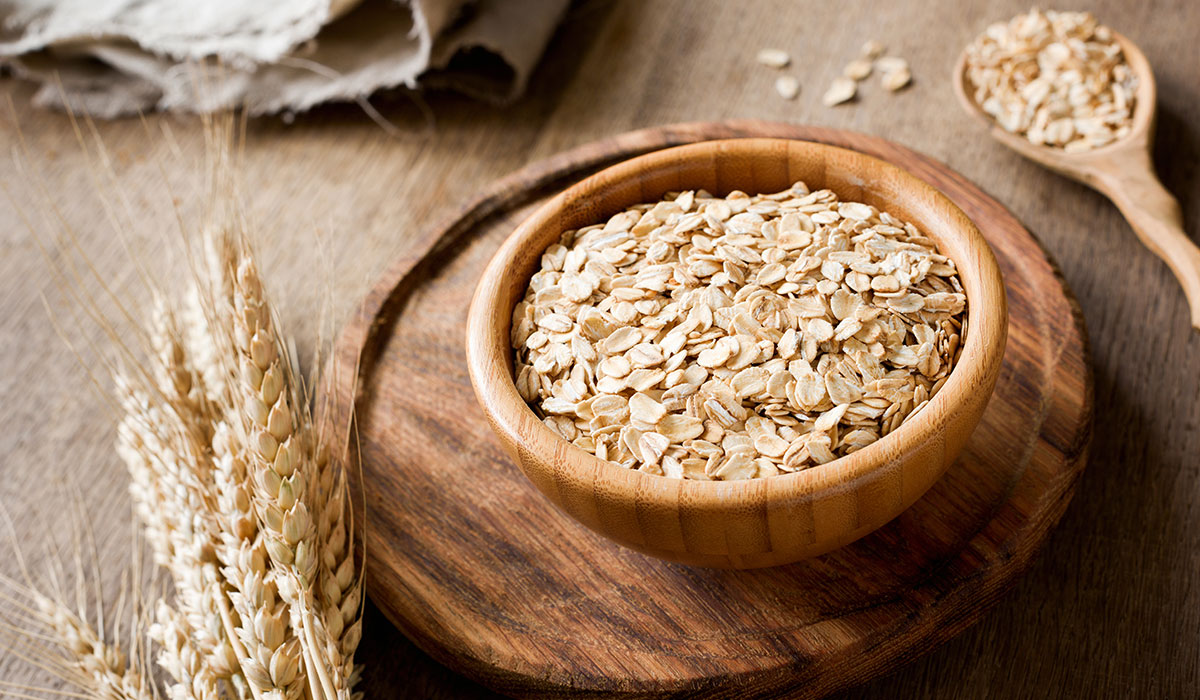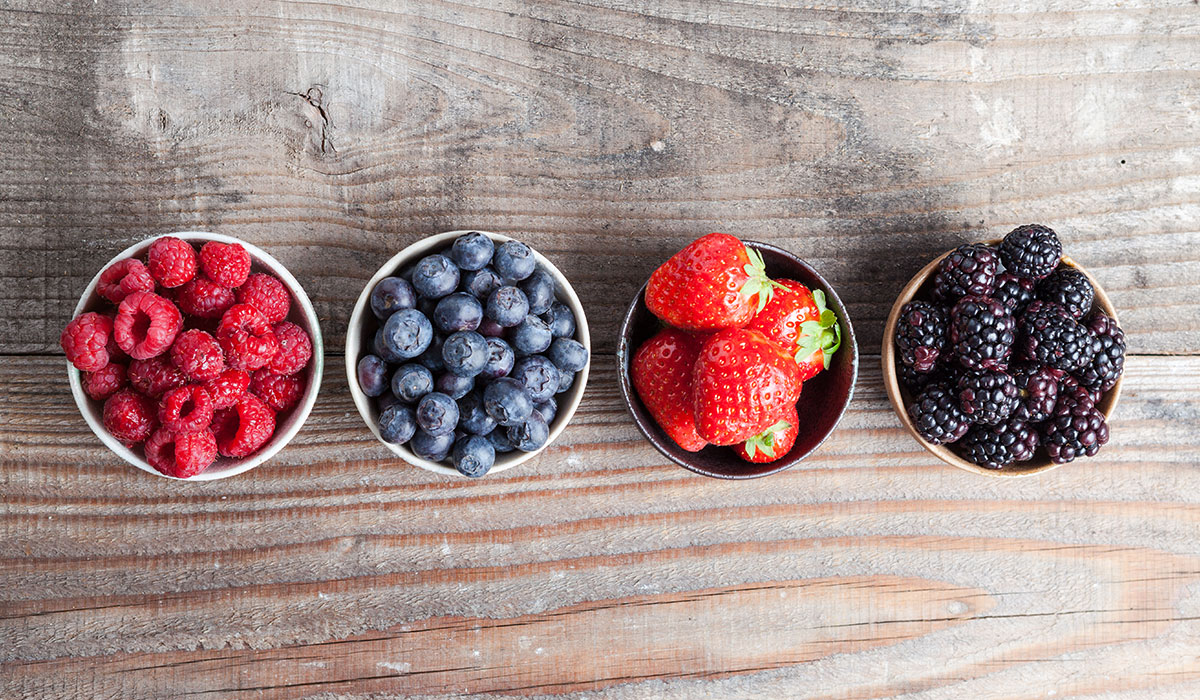6 foods to help with weight loss
Emma White - Nutritionist
If you learn anything from Nutracheck, it's that the key to weight loss success is maintaining a calorie deficit by tracking what you eat. Contrary to the many myths, fads and trends that constantly emerge in the nutrition and weight loss sector, no single food causes weight loss. It's all about taking a whole-lifestyle approach and following a balanced diet – stick to a calorie deficit through diet, take regular exercise, drink enough water and get plenty of good sleep.
That said, we know there are certain foods that may indirectly help you maintain your calorie deficit because of their nutritional properties. Here are 6 foods to add to your shopping list to make weight loss that little bit easier.

1 Soup
Soup can definitely be a great go-to food when losing weight. Primarily made up of water, soups tend not to be very calorie-dense, meaning we can enjoy big portions and feel full and satisfied without a hefty calorie intake.
Research has shown that blended soups can take over 40 minutes longer to pass through the stomach than separated broth varieties. It's believed this is due to the liquid and food being emptied from the stomach at different rates, with liquids leaving faster. Imagine pouring chicken broth soup through a sieve – the water will pass straight through leaving the solid pieces of chicken in the sieve. When ingredients are blended with stock or water, the homogenised mix can't be easily separated. Imagine pouring this into a sieve, it would take some time for it to pass through – which is exactly what happens to blended soup in the stomach.
From a nutritional perspective, a lot of soups are made with vegetables, so can provide us with essential vitamins and minerals. High-fibre ingredients like chickpeas, lentils and barley are also commonly added to soups. Fibre doesn't just help us to feel full – it's also important for maintaining healthy blood cholesterol, stabilising blood glucose levels, and promoting a healthy gut microbiome.
Most shop-bought soups are high in added salt to make them tasty and increase their shelf life, and while salt doesn't contain calories, it has been linked with high blood pressure when consumed regularly in high quantities. Look for reduced-salt soups in the supermarket, or try making your own to have full control over the salt content.

2 Fish
There's a reason it's recommended we eat at least 2 portions a week! Fish is a great source of protein, and different types of fish have their own unique benefits.
White fish, like cod, haddock, plaice, pollock, hake and sea bass, are low in fat, making them lower in calories than other protein sources. Great if you're sticking to a calorie deficit.
Oily fish, on the other hand, are rich in fat, so they do provide more calories. However, this isn't a reason to cut them out of your diet. The type of fat we find in oily fish, like salmon, mackerel, herring, trout, pilchards, sardines and tuna steaks, is the good kind – specifically, omega-3 fatty acids. This type of fat has long been associated with a healthy heart and brain, due to its anti-inflammatory properties. It's recommended we include at least one portion of oily fish a week. Even if you're looking to lose weight, continue to incorporate oily fish – it's incredibly nutritious and might actually be more filling thanks to the higher fat content.

3 Oats
If you're on a weight loss journey, a kitchen cupboard staple has to be oats. Like all grains, oats are loaded with fibre, meaning your morning bowl of porridge should keep your blood sugar stable and your hunger at bay right through till lunch. On top of this, oats contain a special kind of soluble fibre called beta-glucan. Research has shown regular consumption of beta-glucan can lower cholesterol to healthy levels, which reduces your risk of developing heart disease. If you're looking to reduce your cholesterol and protect your heart, regularly including oats in your diet could really help. Beta-glucans can also improve gut health, which we now know is central to lots of health outcomes, including a healthy weight.

4Yoghurt
A deliciously creamy addition to your diet that packs a protein punch, yoghurt can be used in both sweet and savoury dishes to boost the 'filling factor'. When it comes to weight loss, the lower-calorie options (low-fat and fat-free) can be better for enjoying a larger portion size and sticking to your calorie target.
However, fat is often essential for textural and flavour reasons, so when manufacturers remove fat from a product, they need to add something back in to replace it. This is usually a combination of additives to mimic the flavour and mouthfeel of fat, but a common addition, especially for flavoured dairy products, is sugar. To make the best choice for weight loss, be sure to check the ingredients list of your fat-free choices and also look for sugar on the label. It’s best to opt for fat-free products with 'no added sugar'.

5 Beans
We've spoken already about the benefits of protein and fibre, but there's one star food that's rich in both! The humble bean is a fantastic addition to any healthy balanced diet, and can be a particularly useful tool in your weight loss arsenal. Beans pack a double whammy of both protein and fibre, making them incredibly filling, not to mention the additional nutritional benefits. They're also packed with vitamins and minerals, like folate, magnesium, iron and zinc.
Under the bean umbrella sits a whole variety of pulses suitable for all kinds of dishes, from curries and bolognese, to soups and salads, to burgers and dips. Even the nation's favourite, baked beans, are packed with protein and fibre to keep you satisfied and stave off cravings.

6 Berries
Strawberries, raspberries, blueberries, blackberries – whichever takes your fancy, berries are a fantastic staple in any weight loss diet. They're typically lower in calories and sugar than other fruit varieties, plus they're packed with fibre. Fibre is a complex molecule which slows digestion, helping us to stay fuller for longer. High-fibre diets have been associated with a lower BMI, plus we know fibre is great for gut health, which has also been heavily linked to appetite and weight. Berries may also have powerful antioxidant and anti-inflammatory properties thanks to their supply of anthocyanins.

Nutritionist Emma White (ANutr), MSc Human Nutrition is passionate about how food science applies to the human body, and how the nutrients in what we eat affect us and ultimately have an impact on our health.












